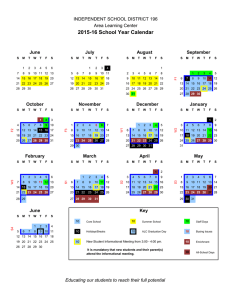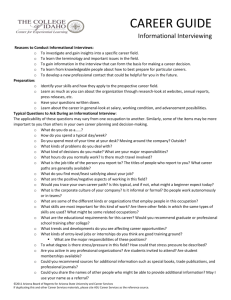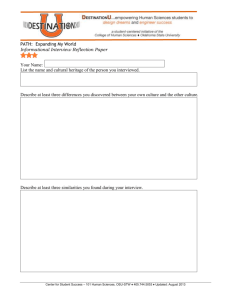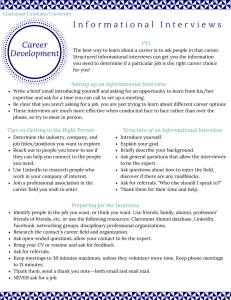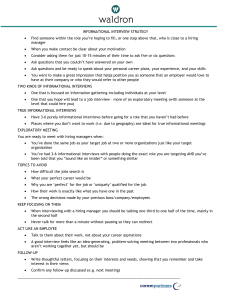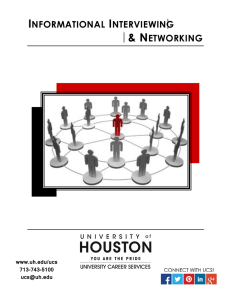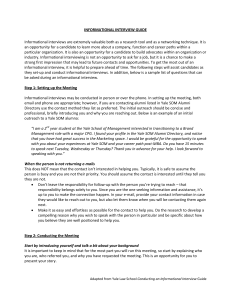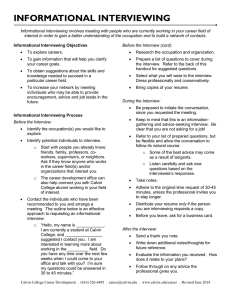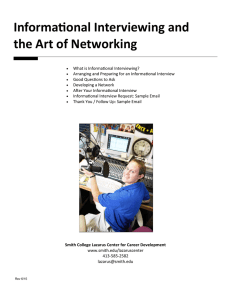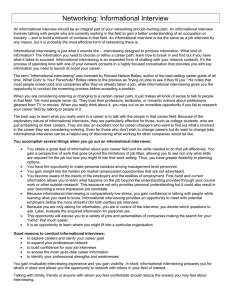INFORMATIONAL INTERVIEW GUIDELINES
advertisement
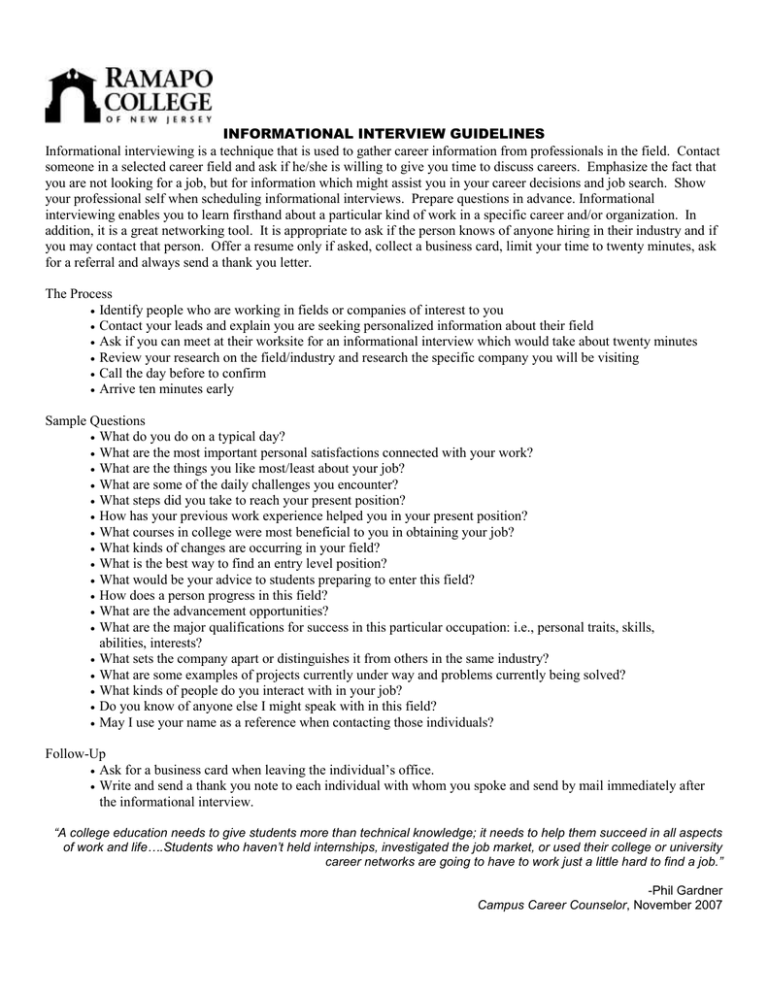
INFORMATIONAL INTERVIEW GUIDELINES Informational interviewing is a technique that is used to gather career information from professionals in the field. Contact someone in a selected career field and ask if he/she is willing to give you time to discuss careers. Emphasize the fact that you are not looking for a job, but for information which might assist you in your career decisions and job search. Show your professional self when scheduling informational interviews. Prepare questions in advance. Informational interviewing enables you to learn firsthand about a particular kind of work in a specific career and/or organization. In addition, it is a great networking tool. It is appropriate to ask if the person knows of anyone hiring in their industry and if you may contact that person. Offer a resume only if asked, collect a business card, limit your time to twenty minutes, ask for a referral and always send a thank you letter. The Process Identify people who are working in fields or companies of interest to you Contact your leads and explain you are seeking personalized information about their field Ask if you can meet at their worksite for an informational interview which would take about twenty minutes Review your research on the field/industry and research the specific company you will be visiting Call the day before to confirm Arrive ten minutes early Sample Questions What do you do on a typical day? What are the most important personal satisfactions connected with your work? What are the things you like most/least about your job? What are some of the daily challenges you encounter? What steps did you take to reach your present position? How has your previous work experience helped you in your present position? What courses in college were most beneficial to you in obtaining your job? What kinds of changes are occurring in your field? What is the best way to find an entry level position? What would be your advice to students preparing to enter this field? How does a person progress in this field? What are the advancement opportunities? What are the major qualifications for success in this particular occupation: i.e., personal traits, skills, abilities, interests? What sets the company apart or distinguishes it from others in the same industry? What are some examples of projects currently under way and problems currently being solved? What kinds of people do you interact with in your job? Do you know of anyone else I might speak with in this field? May I use your name as a reference when contacting those individuals? Follow-Up Ask for a business card when leaving the individual’s office. Write and send a thank you note to each individual with whom you spoke and send by mail immediately after the informational interview. “A college education needs to give students more than technical knowledge; it needs to help them succeed in all aspects of work and life….Students who haven’t held internships, investigated the job market, or used their college or university career networks are going to have to work just a little hard to find a job.” -Phil Gardner Campus Career Counselor, November 2007
